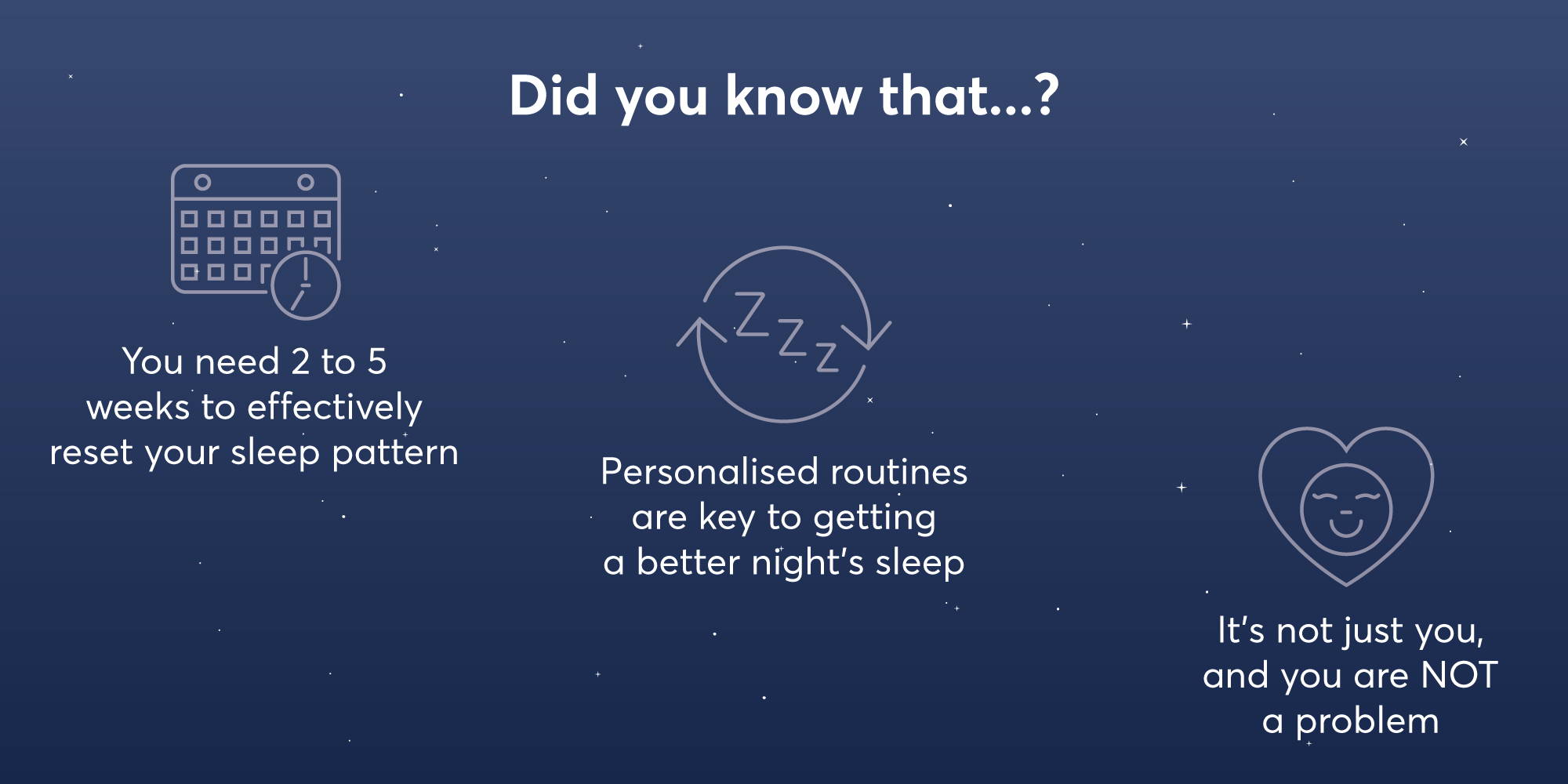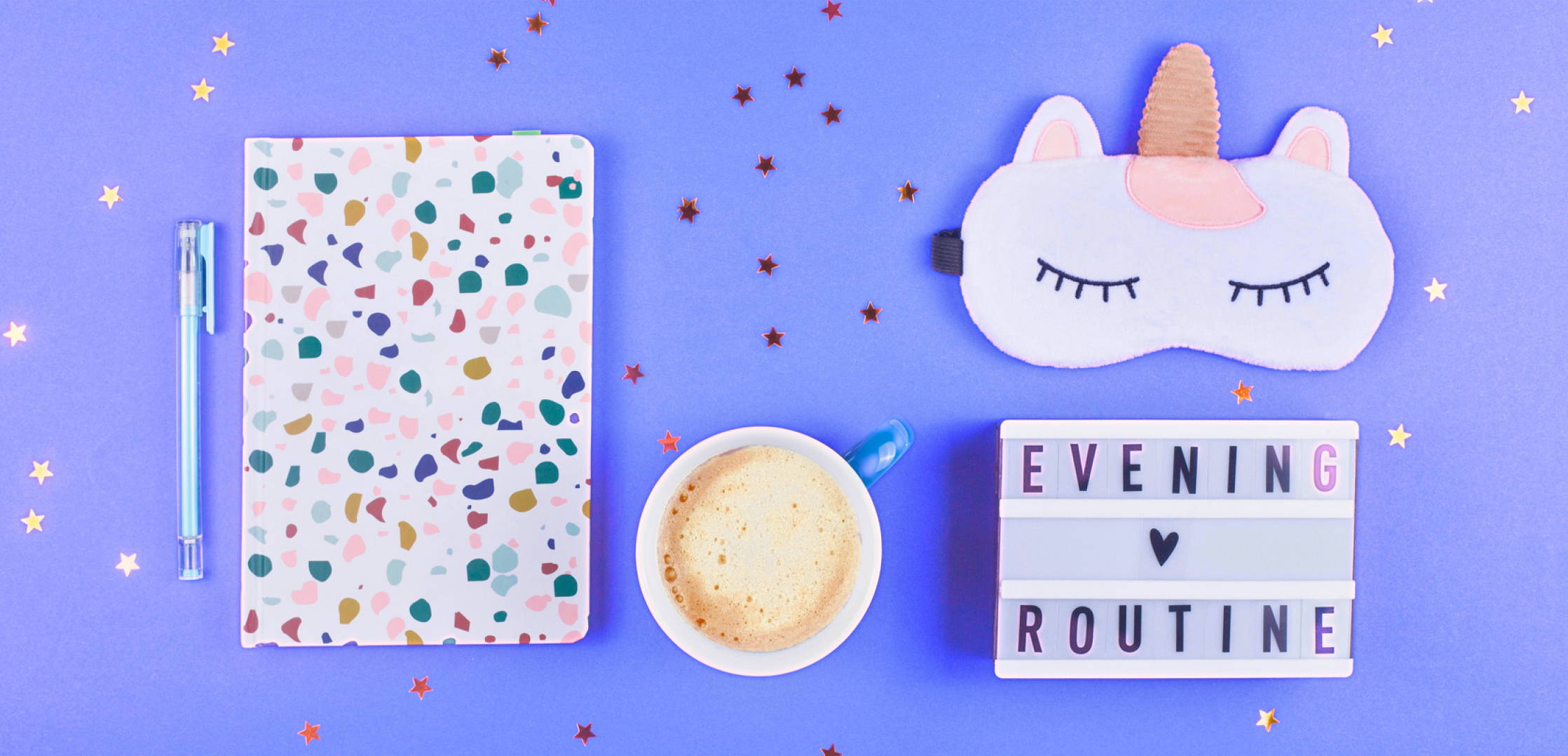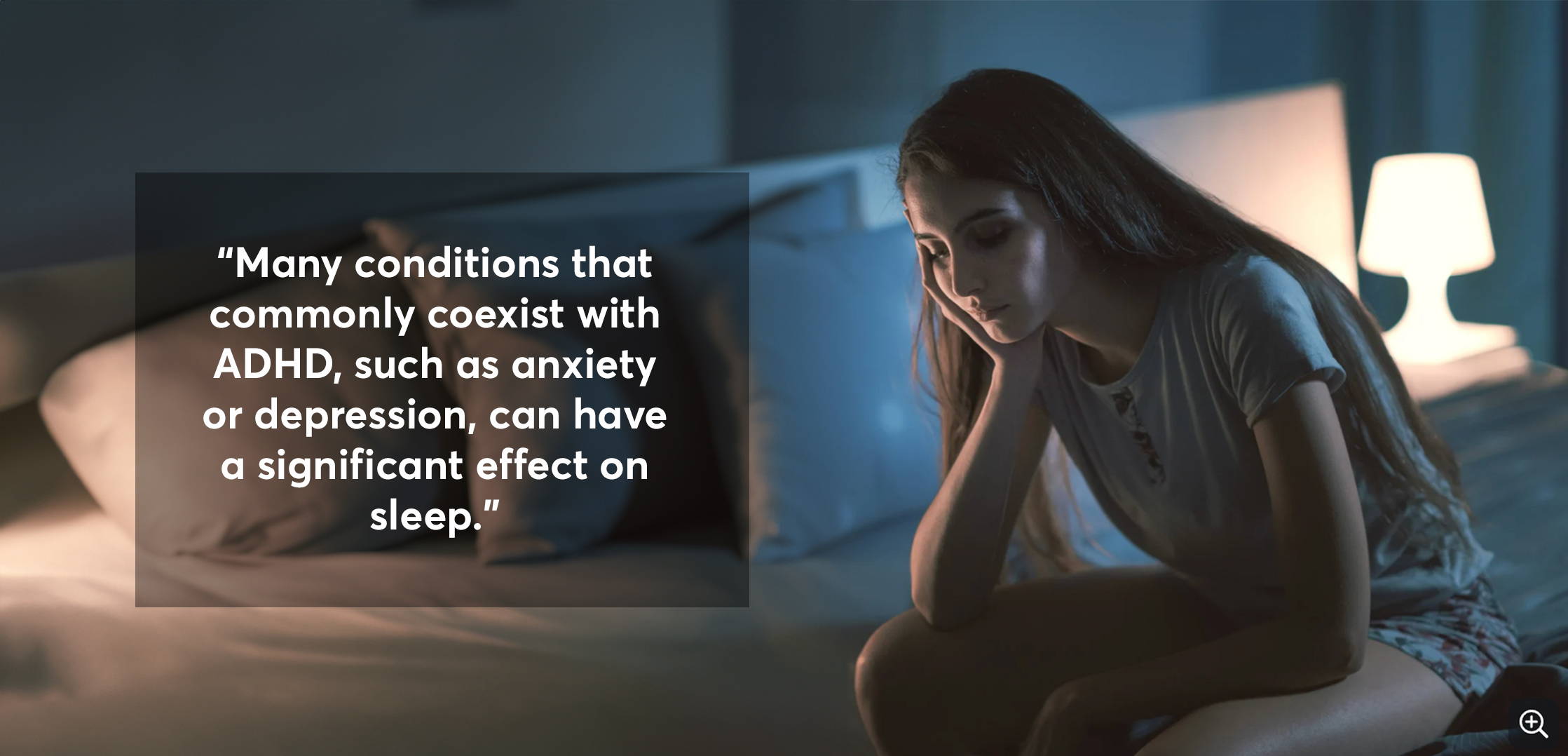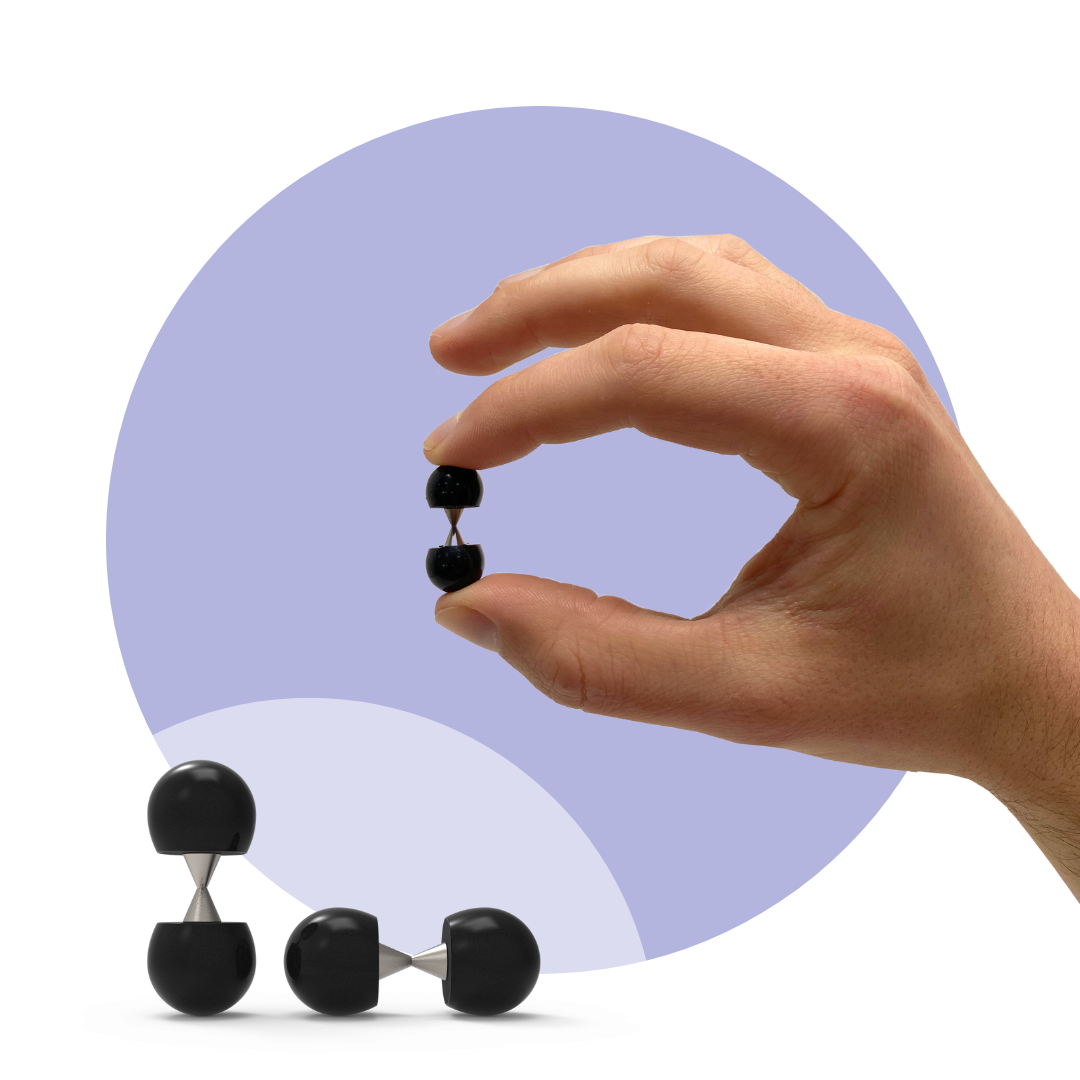Flare’s Sound Asleep Clinic, Part 2:
Neurodiverse Challenges
31st May 2024

Amazing sleep isn't rocket science. It’s a free, non negotiable part of your everyday feel good, creative, personal best. It also helps your mood and is integral to managing your mental health.
But that doesn’t mean it comes easy - and so often for everyone it CAN be a challenge.
THE FLARE COMMUNITY SPOKE… WE LISTENED.
In our recent sleep survey, a huge amount of you asked us to help with some neurodivergent insight.
This is no surprise, as sleep challenges are louder and can be more acute than in the neurotypical community, for so many reasons.
Autistic people have a harder time sleeping because of their neurological differences, according to a 2019 study. (https://www.frontiersin.org/journals/psychiatry/articles/10.3389/fpsyt.2019.00366/full)
If you are Autistic or have ADHD, it’s likely you have struggled with (or are currently struggling with) falling asleep, staying asleep, feeling rested in the morning and so on. Research on non-autistic adults shows that insomnia is a strong predictor of burnout, suggesting a similar link among autistic people with sleep disorders. One of the best ways for anyone to recover from burnout is relearning how to best rest, and particularly to harness your overnight sleep.
As Flare’s Sleep Expert, I am myself AuDHD and deeply focused as a therapist on helping us all get the sleep we need and deserve.
Sleep + Mind Body are fully connected, so it really matters. Sleep will help you so much when you know how best to care for it. In this next section we simplify some of the challenges and why it matters. We do this because gaining insight can help guide creative solutions right for your overall health.
“As a neurodivergent clinician, therapist and author I understand, from both personal and professional experience HOW best to guide better sleep and support… so let’s break down what we can experience so often."
Many coaches tend to focus on encouraging people to be more conforming and productive. I tend to focus on helping the individual in a holistic way… sleep quality is the key to amazing wellness and creative up-side.
THE CHALLENGE
We know that Neurodivergent people can find sleep more of a struggle in specific ways. Research suggests that there is a huge overlap between Autism, ADHD and sleep trouble, just like we are beginning to understand that burnout looks different in Autistic adults than neurotypicals.
Over time, poor sleep can increase stress, anxiety and worry as well as impairment in functioning.
Over 75% ND people have sleep struggles and or overlapping anxiety.
In general, neurodivergent people can very often feel more alert in the evening than they do in the morning. That is the opposite of the way it is for neurotypicals.
Why? Possibly down to unique Structural Differences + Chemical Production
Some researchers believe that the unique brain structures of neurodivergent individuals may change how they sleep.
Sleep problems hint at disruptions in the circadian clock, a cellular timer that keeps cells in sync with the day-night cycle.
Sensory sensitivities to light, sound or touch may contribute to difficulty sleeping.
The experience of SLEEP Differently?
Children & teens with Autism Spectrum Disorder (ASD) are at an increased risk for sleep disturbances, and studies indicate that between 50 and 80% of children with ASD experience sleep problems. Sleep in ND may also be less restorative than it is for people in the neurotypical population.
Some research points to differences in Sleep Architecture.
Example:
ND spend about 15 percent of their sleeping time in the rapid eye movement (REM) stage, which is critical for learning and retaining memories. Most neurotypical people, by contrast, spend about 23 percent of their nightly rest in REM.
Crucially, sleep is a modifiable behaviour and lots of new research is helping us highlight ways to help and why they work, essential for improving self esteem, protecting mental health and emotional regulation.
Some research has shown that better sleep results in improved sensory experiences, social communication, and ability to tolerate change for autistic people needing to navigate an overwhelmingly neurotypical world, education & workplace experiences.

This list is not exhaustive but here is what we often see (and I see in clinic) -
Revenge bedtime procrastination
Revenge bedtime procrastination refers to the tendency to procrastinate bedtime as a form of “revenge” from the busyness of the day. our days are filled with demands, sensory overload, and task-switching.
Time Freedom struggle Vs Recovery time
We desperately need this time and space to be our authentic selves and also TIME to relax and defrag from sensory overwhelm and demands. The only difficulty is that it comes at the cost of our sleep. Nighttime is a time many of us experience alone time and gets to spend time with our special interests or passions.
Experiences of Hyperfocus/Hyperfixation: challenging to stick to a consistent routine and schedule
Our schedule and uncontrolled / social elements may well mean we have to wait until the demands of the day are behind us to focus on a project of interest.
Because of our interest-based nervous systems, we often become hyperfocused and hyper-fixated. When in this mode, we lose track of time, and it is physically painful to stop.

It can be challenging to stick to a consistent routine and schedule
FOOD/DRINK/MEDS timings
There can be subtle differences from un-inclusive advice of normative eating 3 times a day.
Many ADHDers and Autistic people struggle with classic old school sleep advice not to eat 3hrs before bedtime. This means we may not register hunger and thirst signals in the same way as others.
Many people may not eat throughout the day and then have a “revenge” meal at the end of the day.
This means the body is working hard to digest a large meal before bed which can also interfere with sleep. We also see this with med timings and or needing to want to workout/socialise later ... then eating/drinking etc.
While it’s not necessary to be a medical expert to understand your sleep, it is essential to know that neurodivergence can very often impact sleep wellness and amplify anxiety and struggles. But conversely caring for your sleep can often be a key into incredible health for mind/body for you. This just guides us to an empowering step and the reason behind FLARE Audio highlighting the power of sleep care, sensory considerations.
SLEEP & ADHD
New thinking shines a light on ADHD being a 24hr challenge.

Sleep and ADHD have a bidirectional relationship same as mental health conditions, anxiety & sleep
You need to know that disrupted sleep is related to worsened emotional regulation and fuels day to day ADHD impairment.
In addition, neurodivergence can create challenges in maintaining the habits and behaviours that support healthy sleep. But maintaining good sleep health often requires putting our executive functioning skills to good use, including planning, attentional control, flexibility, problem-solving.
ADHD-related sleep problems may be a side effect of impaired arousal, alertness, and regulation circuits in the brain.
Many conditions that commonly coexist with ADHD, such as anxiety or depression, can have a significant effect on sleep as well.
Other researchers believe that ADHD-related sleep problems can be traced to a delayed circadian rhythm (body clock) with a later starting time (onset) of the sleepy hormone melatonin. Hence your digital light diet at night and sound environment really matters!
More about Natalie:
Helpful Links
Natalie Recommends: I am obsessed with Flare’s Calmer® Mini & Sleeep® Pro for travel / work demand and shift work.

Comfortable and discreet
Takes the edge off stressful noises
Reduces stress and keeps you calmer
"Love that I can wear them all day in the office without anyone noticing!" - Sebbastian


Achieve a peaceful nights sleep
-32dB average attenuation
Super-soft memory foam tips
"My husband says these are the best earplugs he's ever tried to block out my snoring and street noise." - Chris V








